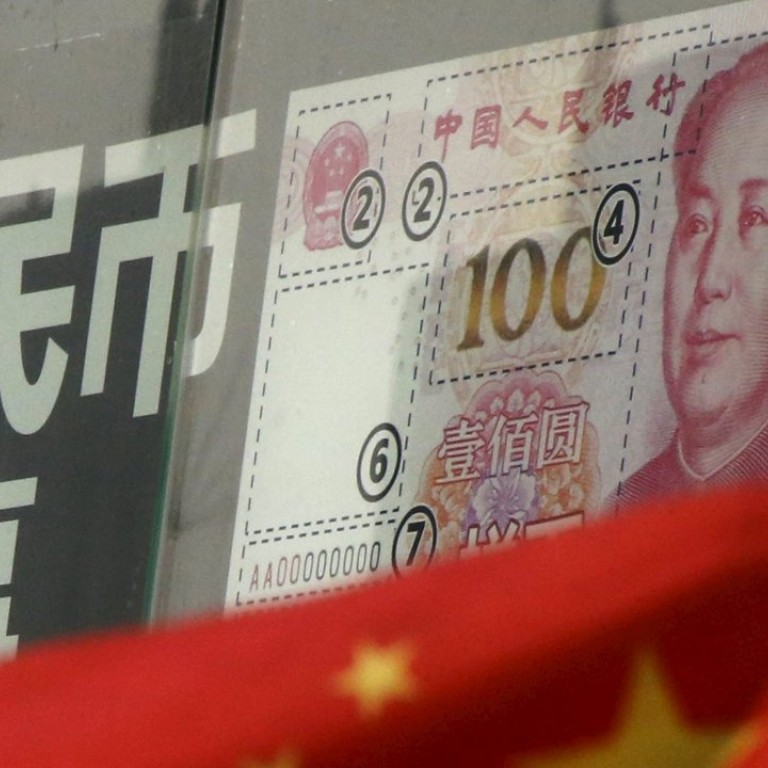
Dim Sum bonds losing shine as China’s onshore yuan bond market reopens
China’s offshore renminbi bond market, also known as dim sum bonds, are losing their appeal to mainland developers who are looking instead to the onshore market for their fundraising needs.
So far this year, there‘s been zero dim sum bond issuance by mainland developers.
What had once been a hot market began to cool sharply last year, when 6.6 billion yuan was raised, down from 18 billion yuan in 2014, according to data provider Dealogic.
Mainland real estate firms had been the backbone of the dim sum bond issuance, accounting for 10 per cent of all offshore issuance last year.
Their waning interest in dim sum bonds will have repercussions for China’s currency.
The offshore yuan bonds market, opened in Hong Kong in 2007, is a key part of China’s ambitions to elevate the yuan into an international currency for trade and finance.
The market grew rapidly from 2007 to 2014, when the yuan was on a appreciating trend versus the US dollar. However the golden years appear to have to drawn to close, with the fatal blow being China’s decision to reopen the onshore bond market to mainland developers in 2014, reversing an edict that put onshore bonds off limits to land companies in 2009, as part of efforts to cool the overheated housing market.
Chinese officials are now hoping to boost property investment by reopening domestic credit channels to developers.
Since the onshore yuan is much bigger in size than the dim sum bonds, and developers can receive more favourable credit ratings from domestic rating agencies, the cost of issuing debt in Shanghai is on average 4 to 5 percentage points lower than Hong Kong.
“Both developers and investors are staying away from dim sum bonds,” said Tony Chen, a mainland property credit analyst at Nomura International (Hong Kong).
“The cost for developers to raise onshore yuan is much cheaper. Dim sum bond are not as attractive as before,” he said.
He added that lending conditions in China are expected to continue to ease as Beijing looks to the property sector as an engine to help drive the economy.
Mainland Chinese developers have been struggling to cut financing costs as land prices have surged in recent years. One way to achieve this is through cheap domestic funding.
Jefferies estimates the mainland property sector’s average borrowing costs last year declined 1 to 2 percentage points by shifting focus to the domestic bond market.
The central bank’s decision to devalue yuan against the US dollar by 2 per cent last August was the trigger that sparked an exodus from the offshore market, analysts said.
“Investors are requiring higher yield to hedge currency risk now, usually a 4 percentage points premium on average,” Chen said.
Invester interest in yuan bonds in Hong Kong had continued to diminish amid expectations of further declines in the yuan’s value against the US dollar. The offshore yuan has depreciated against the US dollar by more than 5 per cent last year. Many expect it will drop a further 5 to 10 per cent this year.
“This year would be a tougher year for the dim sum bond market,” Chen said.
Most Hong Kong-listed mainland developers, including big names like China Overseas Land & Investment have said they plan to raise funds through domestic financing channels this year.
Hoffman Tsui, executive director of KWG property, said his company is has backed away from the offshore bond market in Hong Kong. “It’s too expensive, the rate is about 8 per cent,” he said.
The Guangdong developer issued a domestic bond at the end of last year at an annual yield of 4.94 per cent.
While the dim sum bond market is being marginalised, panda bonds, which are also yuan-denominated, are gaining prominence. Panda bonds can be issued by non-Chinese entities and sold in China’s onshore bond market.
Panda bonds are almost as cheap, or sometimes even cheaper than comparable domestic financing.
Country Garden, one of China’s largest developers, sold 1 billion yuan of panda bonds at 4.99 per cent in late December.
The company has received regulatory approval to be among the first Chinese developers to issue a total of 20 billion yuan in panda bonds.
Panda bonds emerge as Beijing steps up efforts to promote the global use of yuan and as developers look to diversify their funding channels and lower funding costs.
Though still at an early stage, many developers, which operate onshore, but are incorporated offshore, have shown interest in the bonds.
KWG’s vice president of finance department Roger Law said the company was considering panda bonds for its fund raising needs.
“The scale of panda bond financing could be larger as it is issued by a parent company registered overseas,” Law said.

